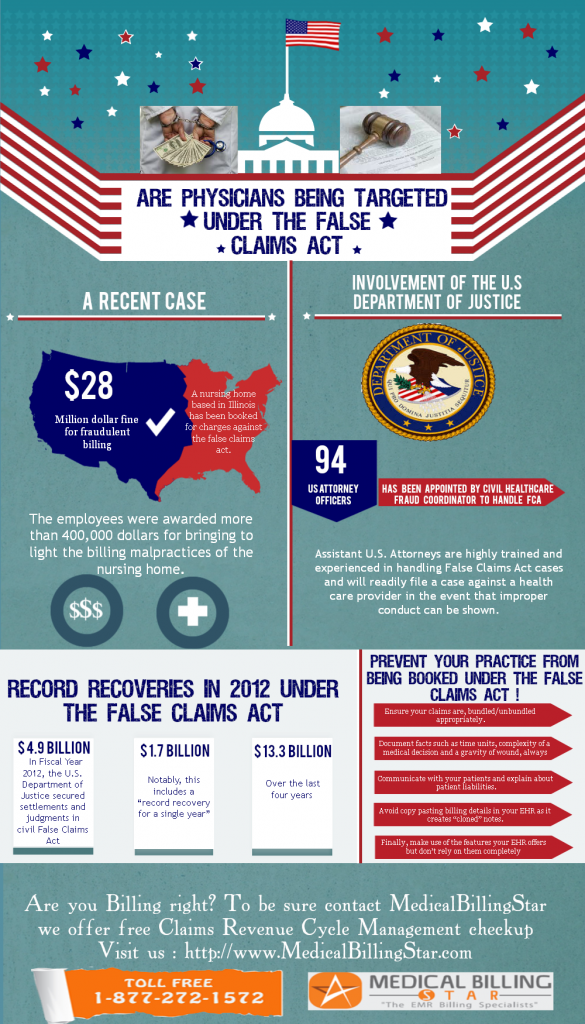False Claims And A 28 Million Dollar Lawsuit !
False claims, data breaches and billing errors happen to others right ? ! No. It can happen to your practice, despite your efforts and best intentions. Don’t wait for a watershed moment to catch you unawares and throw you off the course. Federal regulations are becoming stricter, and the penalties and punishments for fraud and abuse allegations, are more unforgiving.
28 Million Dollar Fine For Fraudulent Billing…
Even as this blog is being written a nursing home based in Illinois has been booked for charges against the false claims act. Two ex employees filed a case against the nursing home for providing inadequate care. And, sending, multiple fraudulent claims to insurance companies. The hospital was penalized for offering useless services and more than 19 million dollars for filing false claims.
The employees were awarded more than 400,000 dollars for bringing to light the billing malpractices of the nursing home.
What Is A False Claim ?
There are physicians who end up with summons for faults they were not even aware of. To safeguard your medical practice from false claims you must first be aware of what constitutes a false claim.
- Submitting an unbundled claim when the claim could have been bundled and submitted as a whole.
- Up coding a medical service.
- Billing for medically unnecessary services.
- Increasing time units or any units of services for acquiring more reimbursement.
- Submitting secondary claims that have to be sent to a different insurer, to the primary insurer.
- Inflating patient care costs.
- Copy pasting records in the EHR can lead to duplication of claims content.
- Making use of automated coding tools and claim edits can lead to over-billing errors.
Tips To Safeguard Your Practice From Being Booked Under The False Claims Act !
- Ensure your claims are, bundled/unbundled appropriately. If you are not too sure pick up the phone and discuss with your insurer.
- Always provide additional documentation substantiating the medical necessity of a treatment prior to transmitting a claim.
- Document facts such as time units, complexity of a medical decision and gravity of a wound, always.
- Communicate with your patients and explain about patient liabilities.
- Submit primary and claims appropriately.
- Avoid copy pasting billing details in your EHR as it creates “cloned” notes.
- Review and update information in your EHR constantly.
- Finally, make use of the features your EHR offers but don’t rely on them completely.

Leave a Reply